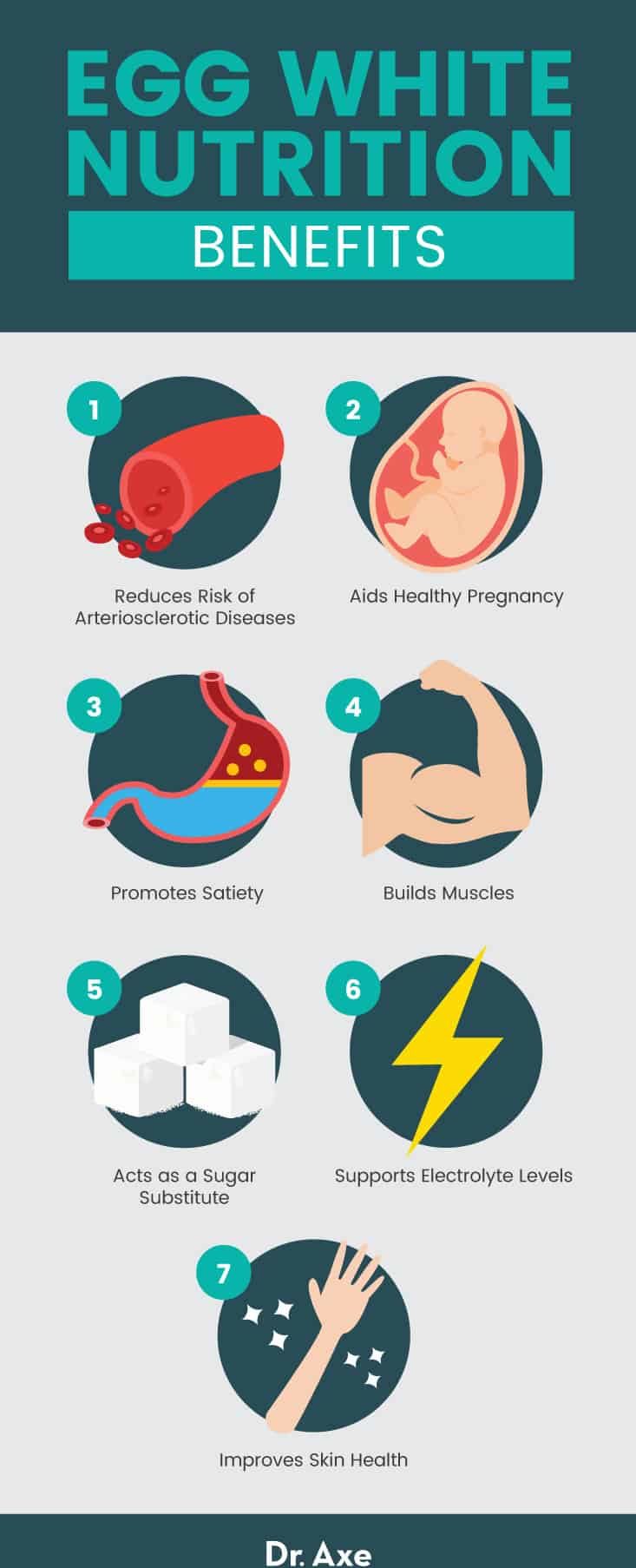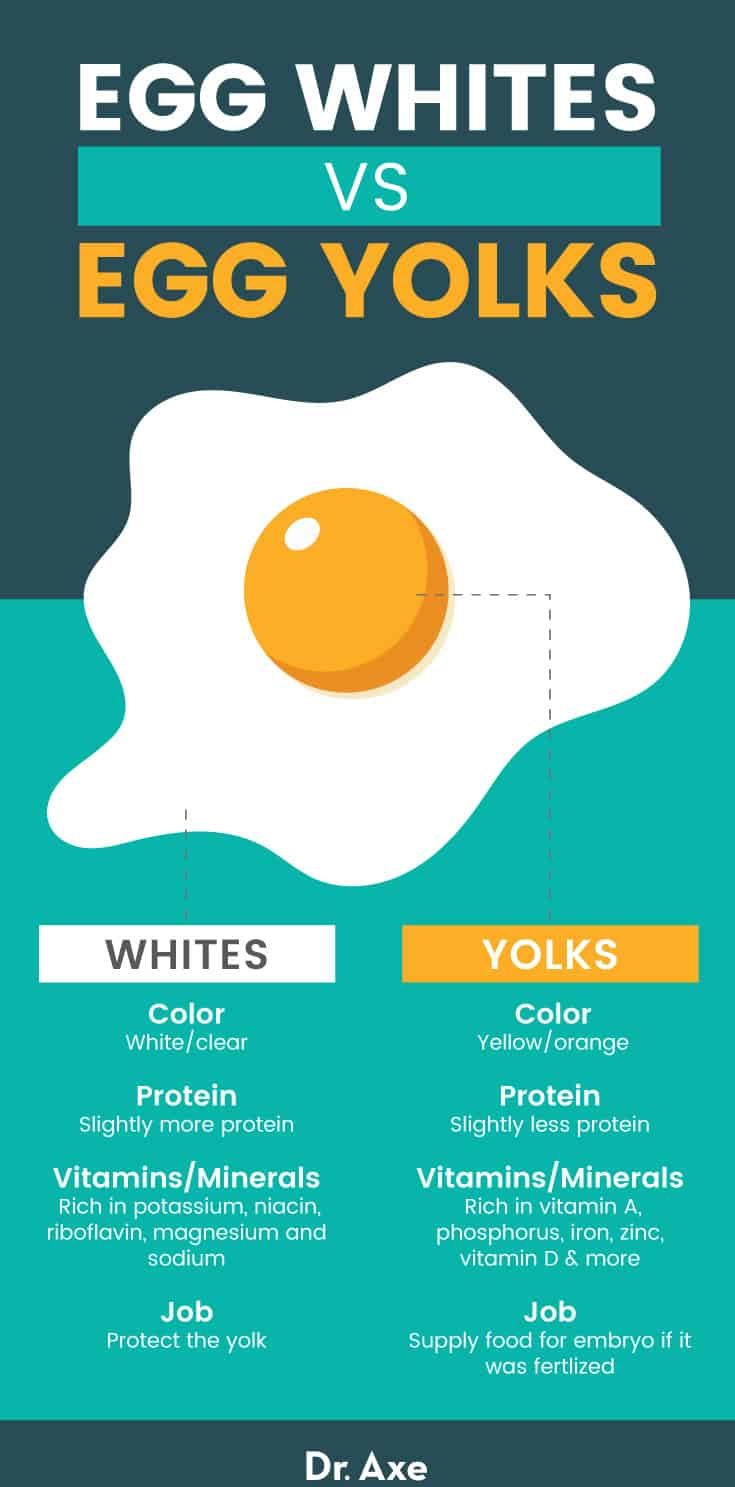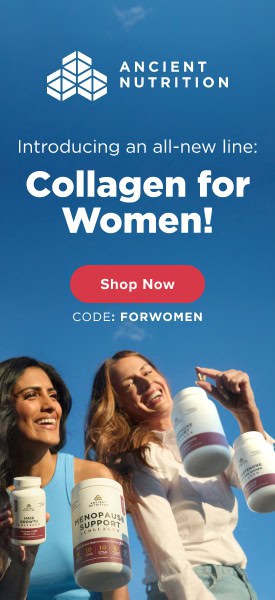This Dr. Axe content is medically reviewed or fact checked to ensure factually accurate information.
With strict editorial sourcing guidelines, we only link to academic research institutions, reputable media sites and, when research is available, medically peer-reviewed studies. Note that the numbers in parentheses (1, 2, etc.) are clickable links to these studies.
The information in our articles is NOT intended to replace a one-on-one relationship with a qualified health care professional and is not intended as medical advice.
This article is based on scientific evidence, written by experts and fact checked by our trained editorial staff. Note that the numbers in parentheses (1, 2, etc.) are clickable links to medically peer-reviewed studies.
Our team includes licensed nutritionists and dietitians, certified health education specialists, as well as certified strength and conditioning specialists, personal trainers and corrective exercise specialists. Our team aims to be not only thorough with its research, but also objective and unbiased.
The information in our articles is NOT intended to replace a one-on-one relationship with a qualified health care professional and is not intended as medical advice.
Egg White Nutrition Benefits the Skin, Heart, Muscles & More
September 24, 2018

From meringues to souffles, omelets and facial masks, egg whites jam a lot of nutrition in such a small package and may be the perfect food for skin care. They’re quite popular in the ketogenic diet as part of a combination with a healthy fat, such as avocado, and they can make a great facial mask for a healthy collagen boost. That’s not all when it comes to egg white nutrition.
But do you know what egg whites actually are? Yes, they’re the clear liquid of the inside of the egg. That liquid is also called albumen or the glair/glaire. The most common egg we experience is the chicken egg, and the egg white is formed around both fertilized and unfertilized egg yolks and has an important job of protecting the yolk. Of equal importance is the job of providing proper nutrition for the growth of the embryo once fertilized.
Much like the human body, egg yolks contain mostly water with about 10 percent being proteins, specifically albumins, mucoproteins and globulins. While the egg yolk is high in healthy fats, the egg white is practically free of fat, and much like egg nutrition, egg white nutrition can do a lot for your health.
Are Egg Whites Healthy? (Benefits)
It’s not uncommon for someone to order an egg white omelet. Historically, egg yolks have gotten a bad rap for causing problems with cholesterol. Because of this concern, the American Heart Association suggests keeping your egg cholesterol consumption to no more than 300 milligrams per day. To put that in perspective, a large egg contains about 213 milligrams. What happens if you just eat the egg white?
Egg whites are very low in calories, have pretty much zero cholesterol, are high in protein and provide amino acids that our bodies cannot produce, making them a great choice for most anyone. At a glance, one large egg white has about 16 calories, 3.6 grams of protein, zero fat and a good bit of selenium. (1)
So we have identified that egg whites are awesome, but what makes them so good? Not only can they taste delicious if properly prepared, but egg white nutrition is loaded with goodness. Let’s dive in and learn why.
1. Reduces Risk of Arteriosclerotic Diseases
If cholesterol is something your doctor has asked you to keep in check, then the egg white is for you. It contains no cholesterol but is still loaded with benefits. To put that in perspective, a whole eggs contains the full amount of cholesterol that’s recommended for one day. So, as delicious as it may sound, having that three-egg omelet may not be the best choice. If you’re battling health conditions like diabetes, heart disease or high blood pressure, it’s recommended that you keep your daily cholesterol consumption at 200 milligrams or less — one egg yolk contains 213.
A study including 88 adult men consumed egg whites for a period of eight weeks. By collecting blood samples, it was determined that there was a significant decrease in cholesterol levels; therefore, consuming egg whites as opposed to whole eggs may be a great way to decrease the risks of arteriosclerotic diseases. (2)
2. Aids Healthy Pregnancy
One egg white provides close to four grams of protein. Like the nutrition of the egg itself and how it nourishes a baby chick, human embryos also need the best nutrition in order to thrive during development and well after.
The Cochrane Database of Systematic Reviews shared its evaluation of a study that was conducted in order to understand the importance of proper nutrition for pregnant women. The study found that of those women who consumed more protein while pregnant, there were fewer babies born prematurely and with low birthweight and the women had more energy. Ultimately, a balanced diet, including egg white protein, may help provide this result. (3)
3. Promotes Satiety
Studies were conducted to determine if having protein at breakfast time would help reduce obesity by reducing hunger and snacking. The goal of this particular study was to evaluate the effects of skipping breakfast — something common among adolescent girls. The study revealed that by having a high-protein breakfast, the teens felt far more satiated, resulting in less snacking and far better diet choices. (4)
4. Builds Muscles
While eating more protein does not magically create stronger muscles, the right protein at the right time does. Here’s how it works. The body requires essential amino acids to create a complete protein that can only be obtained through meats and dairy products, or a combination of plants sources, such as beans and rice. Glycine is one example, and one egg white contains 1,721 milligrams.
When you consume the right protein at the right time, you gain strength because the muscles get what they need to repair and rebuild. For example, if you’re athletic and performed a hard workout, that workout puts stress on your muscles. By consuming a complete protein within 30 minutes of that workout, you can help repair the muscle tissue far faster, resulting in stronger muscles that are ready for the next workout.
For those who are more sedentary, you still need protein for general strength to carry out day-to-day functions without injury, build the immune system and maintain oxygen in your red blood cells. Eating a balance of healthy protein, such as egg whites, carbohydrates and fats, is the best choice for everyone. (5)

5. Acts as a Sugar Substitute
Sugar has been a hot topic for awhile now. If watching your sugar intake is a part of your regimen, then adding egg whites to your diet may be a great choice. Too much sugar causes numerous problems from heart disease, liver disease, obesity, leaky gut syndrome, slow metabolism — the list is long. Egg whites may be the perfect choice to keep sugar overload in check since they contain no sugar.
A study focused on obesity in children and determined that food choices played a significant role in obesity. Of course, that’s no surprise, but making this change is often a challenge. Incorporating egg whites can help by reducing sugar intake, providing vitamins and minerals, helping you feel more satiated and providing a healthy source of protein, all of which can help reduce childhood and adult obesity. (6)
6. Supports Electrolyte Levels
Potassium is similar to sodium in terms of helping ensure you have sufficient electrolytes in the body. This encourages normal muscle function, helps prevent strokes and keeps a healthy heart. Additionally, electrolytes protect the cells in the body by balancing the fluids that are around and within them, which helps your blood pressure stay in check, particularly in the case of too much sodium.
So how does egg white nutrition play a role in electrolytes? Electrolytes come from potassium, and it just so happens that egg whites have a good bit of it — about 54 milligrams. Though you need far more than that and the typical American diet lacks potassium, egg whites are still a great choice. (7)
7. Improves Skin Health
Eggs contain collagen in the membrane just outside of the egg white and just inside of the shell, which serves to protect the egg. If you separate the egg whites, this membrane comes along for the ride. Combined with the beneficial proteins found in egg white nutrition, that can make for an amazing facial mask.
A study was conducted to evaluate the benefits of the effect of egg shell membrane hydrolysates on wrinkles, UV and moisture protection in cosmetics. The study took a look at the level of hyaluronic acid and collagen production. The results indicated that the collagen and protein found in egg white nutrition help reduce wrinkles caused by the sun. (8)
Egg White Nutrition Facts
One large egg white (33 grams) contains about: (9)
- 15.8 calories
- 0.2 gram carbohydrates
- 3.6 grams protein
- 0.1 gram fat
- 0.1 milligram riboflavin (9 percent DV)
- 6.6 micrograms selenium (9 percent DV)
- 53.8 milligrams potassium (2 percent DV)
- 0.1 milligram pantothenic acid (1 percent DV)
- 3.6 milligrams magnesium (1 percent DV)
Egg White vs. Egg Yolk
Let’s now understand the differences in egg whites versus egg yolks. Of course, the color is the first obvious difference. Remember that the egg white has a job of protecting the yolk. The albumen is the official name for the egg white and is opalescent-like or cloudy. That cloudy appearance comes from carbon dioxide, and as the egg gets older, carbon dioxide escapes leaving the egg with more transparency. So the cloudier, the fresher.
Where does the white come in? Well, that happens when the egg white is beaten or cooked. When you crack an egg into a frying pan, the egg white immediately turns from opalescent to white.
To further detail the egg white, the albumen has four layers alternating with thick and thin consistencies. The inner thick is called chalaziferous white. Younger eggs maintain the thick layers, but the older eggs start to thin out. You can easily identify the fresher eggs when you crack them into your pan. Fresher eggs stand up a bit more than older ones, which flatten out more.
Nutritionally, both egg whites and egg yolks get credit for the protein; however, the whites contain more the the yolks.
One large egg white boasts 3.6 grams of protein while the egg yolks contains about 2.7 grams of protein as reported by the U.S. Department of Agriculture’s National Nutrient Database.
Overall, the egg lays claim to an amazing amino acid profile, including histidine, isoleucine, leucine, lysine, methionine, phenylalanine, threonine, tryptophan and valine, plus nine more. In fact, it’s so amazing, that the egg is often the guideline for the perfect protein structure, but if cholesterol is a concerns, going for egg whites may help and still allow you plenty of protein. Finally, according to the Protein Digestibility Corrected Amino Acid Score, whole egg scores exceed all other protein foods tested with a total score of 1.21 in the amino acid score rating system — more than the human body needs.
Egg whites are a source of potassium, niacin, riboflavin, magnesium and sodium. The yolks are rich in vitamin A, phosphorus, iron, zinc and vitamin D. The yolk contains B6 and B12, folic acid, pantothenic acid and thiamine, phosphorus, iron, zinc, and vitamins A, D, E and K. You can also gain some calcium, copper, iron, manganese, phosphorus, selenium and zinc from the yolk. (10)
And though you wouldn’t know it was there, egg whites have even been popular in cocktails due to their frothy appearance and binding properties. (11)

How to Use Egg Whites (Recipes)
Eggs whites may be different than egg yolks in terms of nutrition, but they’re also way different in terms of their structure. You can’t make a fluffy meringue out of the yolk. It has too much fat, and fat breaks the protein bonds. Egg whites are often referred to in a chef’s kitchen as foam. This is due to the fact that egg whites have the ability to become the largest food foam when whipped — about eight times greater than in it’s original state.
To get a bit more technical, beating raw egg whites incorporates air bubbles into the water-protein egg white. When you do this or heat it up, it releases the egg proteins or amino acids. Because some amino acids like water and some do not, it creates a frothy or meringue-like juxtaposition, which is how it “stands up.” It’s like a blend of air bubbles and water that support each other by bonding and then expanding. If done right, it then solidifies when heated, which is how grandma made a gorgeous meringue pie or souffle that didn’t fall.
How to Separate Egg Whites from Egg Yolks
- You need 3 bowls and a pair of clean hands.
- Start by cracking an egg, then gently catch the yolk in your hand, allowing the egg white to slip through your fingers into your first small bowl.
- Then, place the egg white into another bowl (the final egg white bowl where all egg whites will go) and repeat this step for each egg. Ultimately, you want avoid contaminating them with a broken yolk.
- Once you have separated one, place the yolk into another bowl.
- You can keep them in fridge in an airtight container for about three days and even freeze egg whites for a couple of months.
Egg White Recipes
In order to enjoy all the benefits of egg white nutrition, here are a few of my favorite egg white recipes:
History
Egg production has been around for a very long time, but according to the American Egg Board, about 300 million laying birds in the United States yield about 250 to 300 eggs annually. “In total, the U.S. produces about 75 billion eggs a year, about 10% of the world supply. About 60% of the eggs produced are used by consumers, about 9% are used by the foodservice industry. The rest are turned into egg products which are used mostly by foodservice operators (restaurants) and by food manufacturers to make foods like mayonnaise and cake mixes.” (12)
Historically, bakers and chefs used copper bowls to stabilize egg white foams. The copper in the bowl combines with the sulfur component of conalbumin. The bond created is extremely tight, as the sulfur molecules are prevented from reacting with any other material. Today, a more common approach to stabilizing egg white foam is to add cream of tartar, known chemically as potassium acid tartrate. This acidic salt lowers the pH of egg whites, which in turns increases the number of free-floating hydrogen ions and helps stabilize the foam, much like copper. (13)
Risks and Side Effects
For the most part, egg whites are safe, but there are few side effects you should know. Biotin, or B7, can be depleted due to too much of a good thing. Biotin deficiencies may cause skin disorders known as cradle cap in infants and seborrheic dermatitis in adults. If there’s excessive loss, you could experience hair loss, seizures, loss of muscle coordination and muscle tone, and muscle cramps. See a doctor if you suspect you have these symptoms.
Salmonella is a common concern in raw egg whites, but it’s typically destroyed once cooked long enough, though soft-boiled eggs and the sunny-side up versions are still subject to live salmonella. According to the Centers for Disease Control and Prevention, about 1 million foodborne illnesses resulting from salmonella poisoning are treated in the United States, with about 19,000 hospitalizations and 380 deaths. Note that there are various sources of salmonella poisoning from vegetables to livestock, not just raw eggs. (14)
In some cases, eggs can cause allergies. When this happens, the body mistakes egg protein as a harmful substance. You may experience swelling, wheezing, runny nose, watery or red eyes, nausea, diarrhea, or vomiting. Make sure to see a doctor right away if these symptoms occur.
Final Thoughts
- Egg white nutrition actually provides more protein than the yolks, and egg whites are used in all types of recipes.
- They’re cholesterol-free and low-calorie, which is how egg white nutrition benefits the heart, pregnancy, muscles, electrolyte levels and skin.
- Egg whites also promote satiety and act as a sugar substitute, helping prevent weight gain and fighting obesity.




